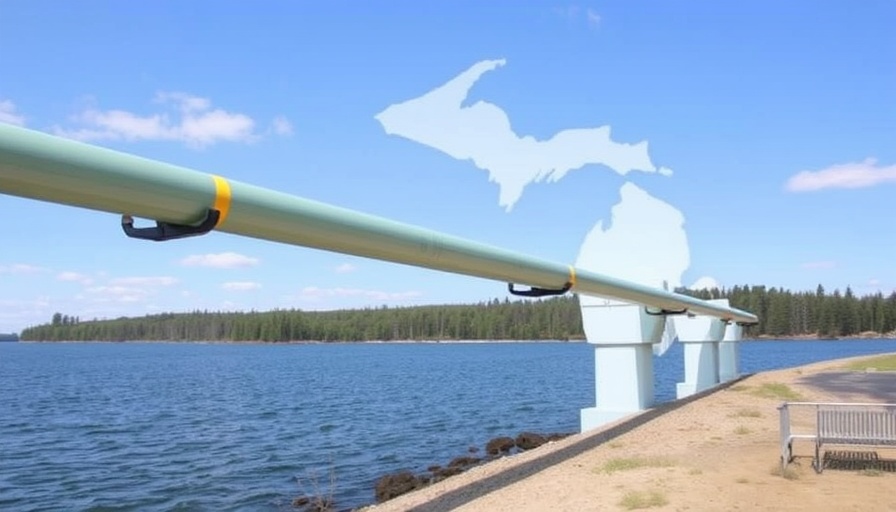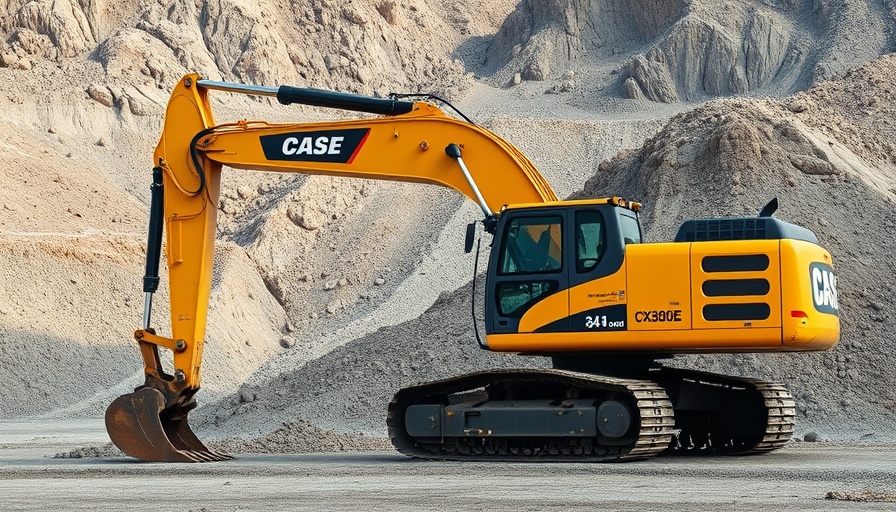
Understanding the Fast-Tracked Permit Process for the Line 5 Pipeline
The recent decision to fast-track the permit process for the controversial Line 5 Pipeline in Michigan has sparked intense discussions about energy infrastructure and environmental responsibility. This pipeline, operated by Enbridge, has been a focal point of debate, as it carries crude oil and natural gas liquids across the Straits of Mackinac. With the permits being expedited, stakeholders are raising concerns over both the ecological impacts and the future of energy independence in the region.
Environmental Concerns and Public Opposition
The fast-tracked permitting process has drawn significant criticism from environmental organizations and local communities. Opponents of the pipeline argue that the Straits of Mackinac, known for their delicate ecosystem, could suffer permanent damage if a leak were to occur. The risk of environmental disasters has been highlighted by various conservation groups who fear that decisions made quickly will bypass critical assessments needed to protect local wildlife and water quality.
Economic Impacts and Community Voices
Supporters of the Line 5 expansion emphasize the economic benefits, claiming that it will provide jobs and stabilize energy prices. They argue that the pipeline is crucial for transporting resources that support Michigan's economy. Proponents point to the hundreds of jobs that may be created during construction and operation, suggesting that these economic factors should be weighed against environmental risks.
A Closer Look at the Regulatory Process
The regulatory environment surrounding the permit process is complex. With the state of Michigan granting expedited approval, many are questioning whether this will set a precedent for future infrastructure projects. The implications of speeding up permitting procedures may lead to conflicts between efficiency and thorough environmental oversight. Understanding the nuances of this regulatory landscape is crucial for stakeholders in the home services sector who may be impacted by changes in energy costs and project timelines.
Future Predictions and the Energy Landscape
As we look ahead, the fast-tracking of this pipeline raises questions about the future of energy infrastructure in the U.S. With the ongoing debates around renewable energy and carbon emissions, it’s vital to consider how such projects align with national energy goals. Will this pipeline slow the transition to more sustainable energy sources? Experts suggest that depending on the developments of this situation, Michigan's energy strategy could be significantly affected.
Actionable Insights for Contractors and Homeowners
For contractors involved in the home service industry, staying informed about energy infrastructure developments is essential. Energy costs could be influenced by the Line 5 Pipeline, which may affect project budgets and timelines for renovations or repairs. Being proactive by exploring alternative energy solutions or advocating for sustainable practices can position contractors favorably in a changing market.
Voices from the Community: The Heart of the Debate
Community sentiments are varied, with many expressing starkly different views on the line's expansion. Public forums and town halls have become platforms for residents to voice concerns or support for the pipeline. Engaging in these discussions not only showcases community engagement but also provides contractors with perspectives on what local homeowners value when it comes to environmental sustainability and energy independence.
As the debate continues, it's imperative for both homeowners and contractors to remain informed and involved. The consequences of these decisions will ripple throughout the industry and influence the very fabric of community energy sources.
For contractors, understanding these dynamics not only provides a clearer picture of the market but also offers a chance to lead discussions about energy responsibility within their communities.
 Add Row
Add Row  Add
Add 






Write A Comment